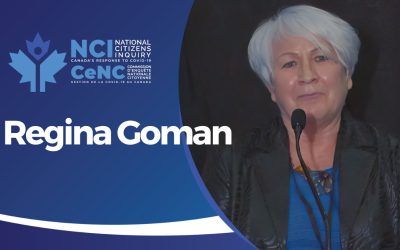Whatever happened to National on Saturday? The “natural party of government” that held office for thirty-eight of the last fifty years of the Twentieth Century received its lowest vote since it was formed in May 1936. “Oh mighty Caesar! Dost thou lie so low? Are all thy conquests, glories, triumphs. spoils shrunk to this little (21%) measure?”
National’s slow subsidence since its peak in the 1960s will be the subject of many analyses. In my view, there were two distinct phases leading to Saturday’s debacle. One was a logical outcome of the other. The first and most important reason is that National hasn’t adapted as well as Labour to the electoral system they jointly helped us stumble into in the 1990s. Yes, National’s support had been ebbing before that; membership never regained the quarter million of the 1960s, and only in 1975, 1987 and 1990 did its vote pass 40%. Like Labour, the Nats were finding it more and more difficult to fill the broad church mandated by First Past the Post (FPP). In 1996 both major parties, but especially Labour that year, were victims of the new MMP system. At that election Helen Clark scored Labour’s lowest vote (28%) in nearly seventy years. But then Labour picked itself off the mat, accepted the smaller niche party status mandated by MMP, and proceeded to manipulate the system with finesse. Helen Clark and Mike Williams deserve enormous credit for that. Today, Labour’s congregation has narrowed to unionists, public service providers and lobbyists for a variety of politically correct causes. MMP peeled away Labour’s side aisles of professionals, intellectuals and a handful of self-employed into ACT on one side, and the (late) Alliance on the other. Somewhere around 40%, rather than the 50% plus that Helen Clark aspired to, will always be flood tide for the winning major party in the niche world of MMP.
National’s church, on the other hand, always accommodated a more diverse congregation. Throughout its history, farmers rubbed shoulders uneasily with businessmen and upwardly mobile urban professionals. Issues like tariffs and protection usually divided them. With the arrival of MMP a few took the opportunity to join ACT or the Christian parties, but enough supporters remained faithful to make National strategists hesitate to redefine the party’s position on MMP’s political spectrum. As a result, National’s church contains as many pews as ever, but there are fewer bottoms on them, as was clearly evident at Bill English’s opening.
National is still searching for a coherent identity. The threat posed by the First Labour Government drew various defenders of private enterprise to National’s 1936 conference. It took time for the new party to settle down. But eventually it adjusted easily to the welfare state in the 1950s and 1960s. Hosts of fair-weather friends turned subsidies and regulations to their own ends under Sid Holland and Keith Holyoake. They padded out National’s huge party membership; it bestowed both status and opportunities upon them. Between 1949 and 1972 National was the dominant political religion in New Zealand, ruling for all but three years.
However, when Britain joined the Common Market and European agricultural policies squeezed out New Zealand’s produce, our economy slowed then went into reverse. Robert Muldoon’s regulatory sermons started grating on worshippers. As he subsidized, regulated and fine-tuned like never before, growing numbers sidled out the church door. More exited over the Springbok Tour, handing three Wellington seats to Labour in 1981. The following year, free enterprisers like Bob Jones bolted over the Wage-Price Freeze, labelling Muldoon the country’s leading socialist. Some heretics returned to National in 1987 and 1990, but the party’s ranks thinned to 35% of the vote in 1993. Three elections later they are thinner still. Jim Bolger, Jenny Shipley, and now Bill English have exhorted them to come home. They show no inclination to do so.
The cold hard reality of MMP is that it is designed for niche sects, not broad churches. The attempts by Bill English and his “brat pack” to refill the ranks by preaching family values and an alternative version of Labour’s message would be a tough task under any electoral system; under MMP it was a suicide note. Any National leader will always be a less convincing centraliser than someone like Helen Clark, to whom it comes naturally. Labour gets away with its policies because its voters are less economically literate than National’s, and equate state spending with growth. But big government is a less convincing creed to National’s target group. They are marginally better educated on average, and certainly more entrepreneurial. When they hear Bill English preaching more spending on education and health as he did throughout this campaign, they instinctively clutch their wallets, knowing they’ll have to put more in the collection plate.
In effect, National’s failure to brand itself with something exclusively theirs led voters to seek alternatives. Why did English persist in sounding like a down-market Labourite throughout the campaign? Why, when he had the nation’s eyes upon him during the televised leaders’ debates, did he choose meaningless slogans over substance? In last Thursday’s final debate, the former Treasurer was given a golden opportunity to outline the steps he would take to arrest our economic slowdown. He dodged the gift question and began talking about air points! Words flowed out of him. Most added up to nothing: “The best way to predict the future is to make it happen!”; “Stand up for what you believe in!”; “We are ambitious for New Zealand!” etc etc. When the time available to press home one’s policies is so limited, a leader must produce memorable sound bites. Sadly, there is nothing of the revivalist orator about Bill English. It was Bill Rowling, not Robert Muldoon who sprang to my mind as I watched him.
But we shouldn’t just blame the pastor. The sermon produced by him, his “brat pack”, and Michelle Boag, was confused and weak on detail. They conspicuously failed to exploit the opportunities given them by Labour’s political correctness. For instance, why hadn’t they read Martin Hames’s The Crisis in New Zealand Schools? Hames doesn’t confine himself to the sorry political saga of the PPTA and its egregious leadership. He convincingly argues that teachers and ministry policy makers are corks bobbing in a see of pink fluff and politically correct agendas. Standards are falling and teachers have become increasingly undervalued. They in turn through their actions give the whole public educational sector a bad name. Public confidence spirals downwards, and parents turn to private schools in desperation. Crusading for higher educational standards, even if this implied some criticism of National’s past stewardship, would surely attract more voters than unspecific prattle in “support” of parents and students, and empty promises to “get alongside” them.
In this campaign National passed up opportunities to reposition itself in line with the party’s core principles. On health and welfare, as well as Treaty issues, they should have been more forthright. And surely the extra burdens placed on the productive sector by Labour were ripe for exploitation? It is a fact that economic growth could have been at least 1% higher in each of the last three years had competition within ACC been retained, and excess compliance costs tackled. National could graphically have shown what that extra growth meant for families, but which had been stolen by the left’s social engineers. In the end, when past supporters peeped in National’s church door during this campaign, there was nothing to entice them further except empty words and even emptier pews.
This caused the second stage in National’s disintegration. With the Greens having identified themselves as the right’s Public Enemy Number One, something akin to panic seized many past and current National supporters. They didn’t have to hear out Bill English’s dirge. Instead they set off down the street checking out the political peep shows that MMP provides. There they ogled Peters, Prebble and Dunne. Shop worn each might be, but at least their messages were clear, and none was clearly of the left. Peters in particular has an irresistible appeal to elderly ladies, Dunne to those earnestly seeking a steady, reliable restraining force on a left wing government whose experiments they feared might get out of control. Once it was clear that National and ACT together couldn’t form the next government, the same fear that had led to National’s creation in 1936 produced its 2002 collapse.
This is crisis time for the Nats. Before they can attract back their lost congregation they will have to define their niche within MMP, and sharpen the message. Make no mistake, there is a place in the market for policies based on National’s core free-enterprise principles. Moreover, there are enough bewildered voters milling around to respond to solid leadership and credible policies. This is a conservative country not given to socialist experimentation, and voters will always be on the lookout for a steady, reliable political vehicle. Why else Peter Dunne? Either National engages in very tough soul searching and puts everything up for discussion, including the leadership, or it will end up like the old Liberal Party which finally gave up the ghost in the 1930s, its last few parishioners straggling across to National in 1936. Saturday night was either a new beginning, or the beginning of National’s terminal phase.


